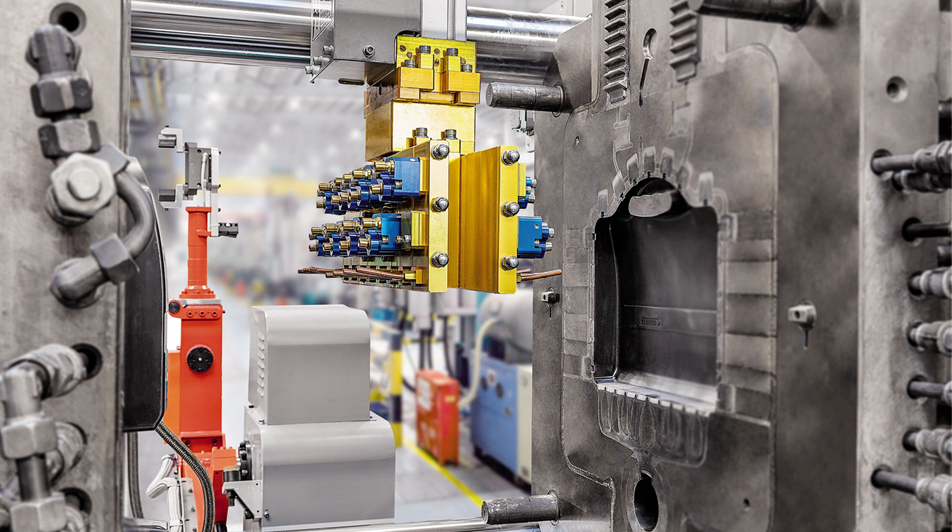Aluminum alloy die casting is a manufacturing process that involves the injection of molten aluminum into a steel mold to create complex shapes with high dimensional accuracy. The process is widely used in the automotive industry, aerospace, and electronics industry due to the lightweight and strength properties of aluminum alloys.
In this ultimate guide, we will discuss the key aspects of aluminum alloy die casting, including the process, advantages, disadvantages, applications, and the different types of aluminum alloys used in die casting.
Process of Aluminum Alloy Die Casting
The process of aluminum alloy die casting involves the following steps:
1. Mold design: The first step is to design the steel mold that will be used to create the desired shape. The mold is usually made up of two parts, the cavity and the core.
2. Melting of aluminum: The aluminum alloy is melted in a furnace at a temperature of around 700°C to 750°C.
3. Injection of molten aluminum: The molten aluminum is injected into the steel mold with high pressure using a machine called a die casting machine.
4. Cooling and solidification: After the molten aluminum is injected into the mold, it cools and solidifies to take the shape of the mold.
5. Ejection of the casting: Once the aluminum has solidified, the mold is opened, and the casting is ejected from the mold.
6. Finishing: The casting is then trimmed, cleaned, and polished to remove any excess material or imperfections.
Advantages of Aluminum Alloy Die Casting
1. Lightweight: Aluminum is a lightweight material, making it ideal for applications where weight is a concern, such as in the automotive and aerospace industries.
2. High strength: Aluminum alloys have high strength-to-weight ratios, allowing for the creation of strong, durable parts.
3. Dimensional accuracy: The precise steel mold used in die casting ensures high dimensional accuracy and consistency in the final product.
4. Complex shapes: Die casting can create complex shapes that would be difficult or impossible to create with other manufacturing methods.
5. Cost-effective: Die casting is a cost-effective manufacturing process, with high production rates and low labor costs.
Disadvantages of Aluminum Alloy Die Casting
1. Limited material selection: Aluminum alloys are the most commonly used materials in die casting, limiting the range of materials that can be used.
2. Tooling costs: The cost of designing and manufacturing the steel mold used in die casting can be high, making it less suitable for small production runs.
3. Porosity: Aluminum alloys can be prone to porosity, which is the presence of small air pockets or voids in the casting.
Applications of Aluminum Alloy Die Casting
Aluminum alloy die casting is widely used in a range of industries, including:
1. Automotive industry: Die casting is used to manufacture a range of automotive components, including engine blocks, transmission cases, and steering knuckles.
2. Aerospace industry: Die casting is used to manufacture components for aircraft, including engine components and structural parts.
3. Electronics industry: Die casting is used to manufacture components for electronic devices, including computer cases, heat sinks, and mobile phone housings.
4. Medical industry: Die casting is used to manufacture medical devices, including surgical instruments and prosthetics.

Types of Aluminum Alloys Used in Die Casting
There are several types of aluminum alloys used in die casting, including:
1. A380: A380 is the most commonly used aluminum alloy in die casting, with good strength and thermal conductivity properties.
2. A413: A413 has good fluidity and pressure tightness, making it suitable for thin-walled parts.
3. A360: A360 has good corrosion resistance and is often used for parts that will be exposed to harsh environments.
4. ADC12: ADC12 has good strength and corrosion resistance properties, making it suitable for a range of applications.
Conclusion
Aluminum alloy die casting is a widely used manufacturing process that offers several advantages, including lightweight, high strength, and complex shapes. However, it also has some limitations, including limited material selection and high tooling costs. Understanding the process and the different types of aluminum alloys used in die casting can help manufacturers select the most suitable process for their specific applications.
-

- Integrated 3-spoke wheel for MTB with CNC machining &surface treatment
-

- Magnesium Aluminium alloy die casting parts Chain cover for automotive
-

- ชิ้นส่วนและส่วนประกอบหล่อโลหะผสมแมกนีเซียมสำหรับ e-bike
-

- หมวก Thixomolding หล่อโลหะผสมแมงเกนเซียม
-

- Magensium mountain bike frame
-

- Magnesium foundry parts Steering column

 0086-750-5616188
0086-750-5616188 +86 13392089688
+86 13392089688 sales@zhongmei-tech.com
sales@zhongmei-tech.com







